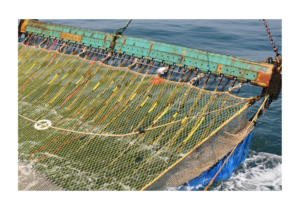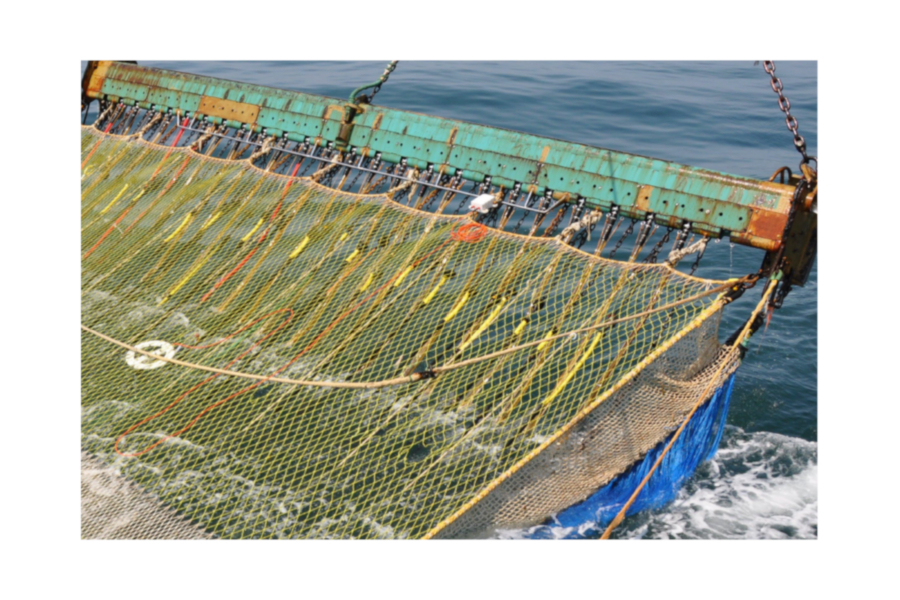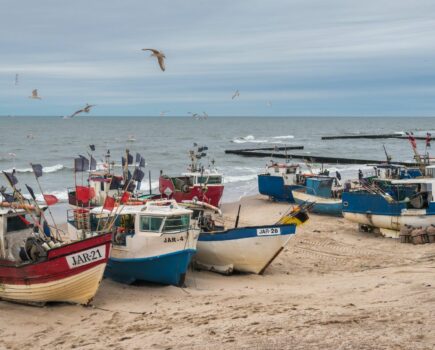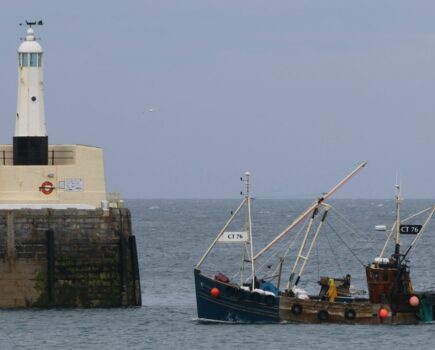ICES gives green light to pulse beaming
‘Less damaging’ than conventional beam trawling
Leading international scientific fisheries body ICES says that electric pulse beam trawling is less damaging to the marine environment than conventional beam trawling, reports Tim Oliver.
In a new report, the scientific body says that a change from conventional to electric pulse beam trawling when fishing for North Sea sole ‘contributes to reducing the ecosystem/environmental impacts of the sole fishery’, and that provided the sole stock is well managed, ‘pulse trawling does not impose any increased risk to its sustainable exploitation’.
The EU introduced a phased ban on pulse beaming in 2018 after an intense campaign by environmental group BLOOM and UK and other EU inshore fishermen, who said it was killing everything in its path and leaving their grounds barren.

Electric pulse beaming is due to be phased out by mid-2021, but Dutch MEPs are trying to overturn the ban.
Pulse beaming effort has been halved and is due to be phased out completely in 2021, but a group of Dutch MEPs is now trying to re-open the debate on the back of the ICES report.
ICES’ report is a response to a request from the Netherlands for an assessment ‘regarding the impacts of pulse trawling on the ecosystem and environment from the sole (Solea solea) fishery in the North Sea’.
The scientific body advises that ‘the direct impact of the electrical pulse on marine organisms does not increase mortality compared to that of conventional beam trawling (other than being caught in a fishery)’.
It notes that cod is an exception, but the increase in mortality from pulse trawling in the southern North Sea is less than 2%, and negligible in terms of the overall North Sea cod stock.
It also says that pulse trawling ‘is not expected to affect the reproductive potential’ of other marine organisms not caught in the fishery.
It adds: “Pulse fishing reduces the bycatch of most undersized fish and of benthic invertebrates, and reduces the disturbance of the seafloor and the impact on the benthic ecosystem. It also reduces use of fuel and associated CO2 emissions as compared to conventional beam trawling.”
ICES further advises: “The documented effects of pulse trawling on the benthic ecosystem are consequences of mechanical disturbance rather than electrical pulses. Furthermore, the effect of mechanical disturbance is less pronounced because of the smaller area that is trawled by the pulse gear, the reduced penetration into the seabed, and the reduced resuspension of sediments as compared to conventional beam trawling.”
It also notes: “The change from conventional beam trawling to pulse trawling does not increase, and in some cases may reduce, pressure on Natura 2000 habitats and species.”
The UK government introduced a ban on pulse trawling in UK waters shortly after the EU announced its ban early in 2019 as part of a wholesale revision of the technical measures regulations.
According to the website Fiskerforum, a group of Dutch MEPs, led by Peter van Dalen, vice-chairman of the European parliament’s fisheries committee, aims to reopen the pulse trawling debate. They have written to EU fisheries commissioner Virginijus Sinkevicius asking if the Commission is aware of the ICES report, and what its views are, and calling for the Commission to rescind the ban through an amendment to the technical measures regulation. They argue that the ICES report indicates that the pulse ban is unjustified.
They are also asking the Commission’s view on whether the decision to ban pulse fishing was unlawful and premature, considering that there was no final scientific study of pulse fishing at the time the decision was taken.
“In the EU, we take decisions on fisheries based on scientific studies. There is now a study by ICES on pulse fishing, which includes 10 years of research. Pulse fishing is very beneficial both ecologically and economically. The ban on the pulse must be removed,” Peter van Dalen said.
“The ICES report is a basis for reopening the discussion about the ban on pulse fishing. That is what we are going to do now.”
Claims of less damage ‘laughable’
NUTFA spokesman Jerry Percy, a leading campaigner against pulse beam trawling, said that the argument that pulse beaming has a lower impact on the environment than beam trawling was ‘laughable’.
He said it appeared that ICES had been ‘led by the nose’ due to the very specific questions asked by the Netherlands.
He told Fishing News: “I think it’s obscene that they should publish such a narrow response, knowing full well that it would be used by the usual suspects, whilst at the same time ignoring the mass of first-hand observations by fishermen, and the CEFAS study results from last year.
“Additionally, it is surely no coincidence that those calling for a removal of the ban are Dutch politicians. We can only hope that the new(ish) EU fisheries commissioner does not allow these vested interests to pull the wool over his eyes.
“The argument that pulse trawling has a lower impact on the environment than beam trawling is laughable – it is akin to comparing being stabbed or poisoned. The tools are different but the results are the same.
“The narrow and restricted focus of the questions was clearly designed to produce a similarly narrow and restricted response, conveniently ignoring the wider issues of electrocuting the seabed.
“And to suggest, as Dutch MEP van Dalen does, that ‘pulse fishing is very beneficial both ecologically and economically’ is akin to someone suggesting that the best way to test one’s eyesight is to drive 30 miles to a beauty spot.”
Jerry Percy said that the Dutch MEPs’ claims regarding scientific studies also ‘do not hold water’, because until CEFAS undertook independent research into the effects of pulse trawling, the only ‘studies’ done were by the Dutch, and they did not use an acceptable scientific approach of ‘before and after, control and impact’.
“It is particularly disappointing that ICES also chose – although the restricted nature of the questions was a factor – to ignore the vast weight of evidence of first-hand observations of the impact of pulse fishing provided by fishermen on the ground. We are constantly told that our knowledge and observations are relevant and of value, but apparently only when it suits someone to take notice of them.”








